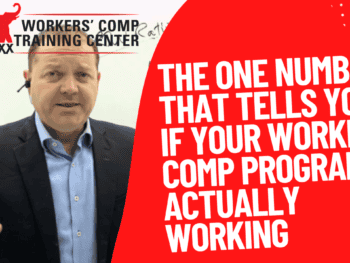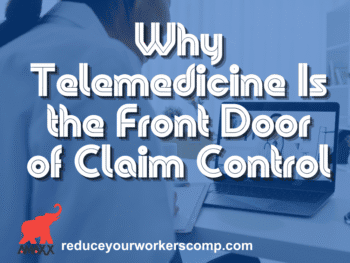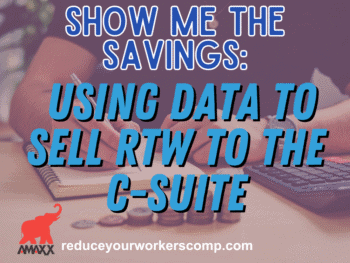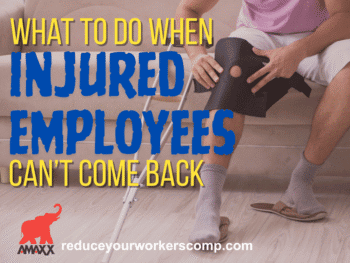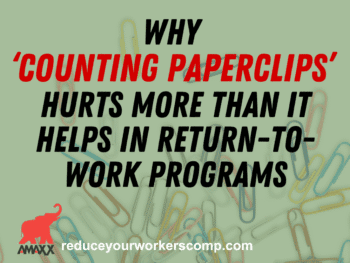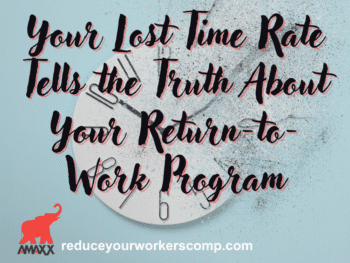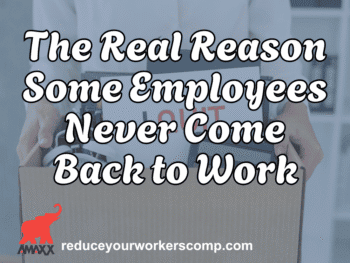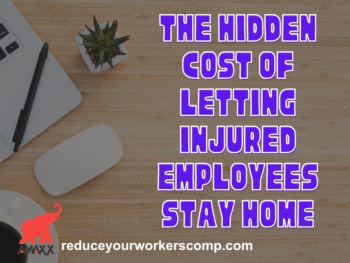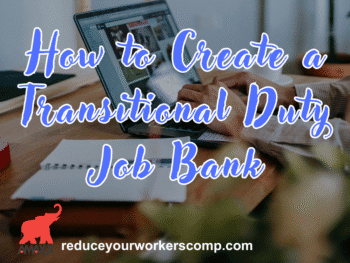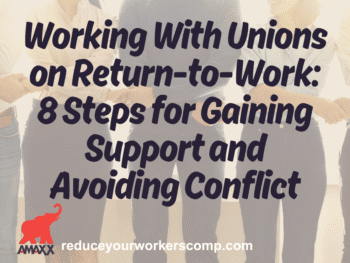WCRI Recap – 3 Part Series
- WCRI Recap – Impact of Donald Trump and 2016 Election
- WCRI Recap: 3 Factors That Most Impact Worker Outcomes
- WCRI Recap: Single Biggest Factor To Turn-Around Opioid Crisis
It’s been two weeks since the WCRI Conference recently held in Boston. I’m Michael Stack with Amaxx and today I want to give you some highlights and recap from that recent conference, from the notes that I took and the perspective that I had on it. The second session was about worker outcomes and what impacts, based on studies and research to define the best outcome.
What are those factors that we can address? For me, this was the most interesting and impactful session for what I do, which is work with employers, insurance brokers and educating best in class programs. This session is one that I found extraordinarily valuable to get an understanding of, what are those things that impact the outcomes that we can address at the beginning a claim and make sure our success is that much more likely.
Single Biggest Factor That Impacts Claim Outcome
This is a study I’ve quoted a number of times. It was published by WCRI a few years back and they came out with a study and said, “The biggest single factor based on their research that impacts the outcome of that claim is trust.” The biggest single factor that outcome impacts the outcome of a claim, is the amount of trust between an employee and an employer. Hugely important point. Hugely important factor to understand. Now, we’ve seen that one before.
How Does Supervisor Respond to Injury?
Glen Pransky from Liberty Mutual gave a presentation about some of their research and their studies. I found it extraordinarily interesting and valuable. Here’s what they came up with. Two different things that impact their outcomes, one of the biggest factors, all things being equal, if how does the supervisor respond to the injured worker at the moment that claim is reported. I’m going to say that again. How does the supervisor respond to the injured worker at the moment that that claim is reported. Do they respond with blame and anger and frustration? There’s that lack of trust there. They’re not trusting that the employee maybe said they get injured and they say, “Yeah, right. You didn’t get injured. Get back to work.” Or, “How could you do that wrong? You are now in trouble.” That lack of trust there. So, how does that supervisor respond to that injured worker at the time of injury? All things being equal, if they respond positively, it’s going to have a significantly better claim outcome. If they respond negatively, a significantly worse claim outcome. That was number one, “How does a supervisor respond to the injured worker at the time that claim is reported?”
How Does Insurance Adjuster Respond to Injured Worker?
Number two, how’s the insurance adjuster respond or how is that first interaction with the injured worker go? Are they using big insurance words that the injured worker doesn’t understand? Things like adjudication and calling him the claimant and all these different things that really foster this lack of trust that they’re going to be taken care of. So, if there’s all these things that they don’t understand and they don’t know what’s going to happen, what are they going to do? They’re going to make sure their rights are protected. They’re going to call an attorney and they’re going to be going down this path which makes the claim that much more complicated, because they had a poor interaction with a supervisor and their adjuster’s causing him all this adjudication. They say, “I don’t know what’s going on. I better look out for myself.” So, how you responding to the injured worker, how do those communication interactions, things to train on, things to work on.
Do You Think…
Here’s the next piece, which I thought was extremely interesting and something you need to input, impact into your program today. Starting today, do this on every single claim. Here’s what it was, they asked this question, it’s a highly predictive question of the outcome of that claim, “Is do you think, you’ll be back to work within four weeks without any restrictions?” Do you think, you will be back to work within four weeks without any restrictions? Do you think you’ll be back to work in four weeks without any restrictions? Highly, highly predictive question to ask of what that outcome of the claim is. If they say, “no” then you get to ask them why. “Why don’t you think you’ll be back to work?” You can bring in additional resources and support to drive that. If they say, “yes” then they’re setting that expectation in their own mind and it’s only going to drive that success to get them back to work. Highly predictive question and response to that claim’s outcome, “Do you think you’ll be back to work within four weeks without any restrictions?” Start asking that question, every single one of your claims today.
For additional information on workers’ compensation cost containment best practices, register as a guest for our next live stream training.

Contact: mstack@reduceyourworkerscomp.com.
Workers’ Comp Roundup Blog: https://blog.reduceyourworkerscomp.com/
Live Stream WC Training: http://workerscompclub.com/livestreamtraining
©2017 Amaxx LLC. All rights reserved under International Copyright Law.
Do not use this information without independent verification. All state laws vary. You should consult with your insurance broker, attorney, or qualified professional.

